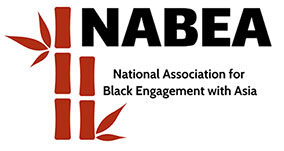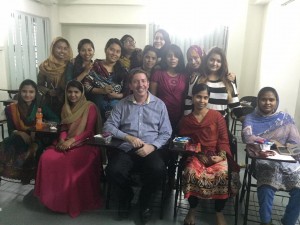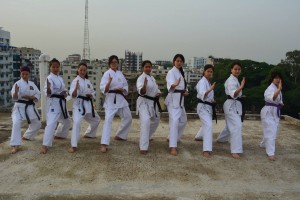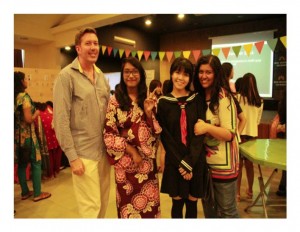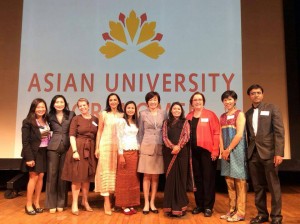Do you know about NABEA (the National Association for Black Engagement with Asia)?
**************************
We recently learned about the National Association for Black Engagement with Asia (NABEA) which seeks to connect Black Asia specialists in both the public and private sectors. They also hope to increase the representation of Black Americans engaging with Asia. Through their programming, they work towards building a mutually beneficial economic, political, social, and cultural relationship between Black America and the Indo-Pacific region.
There seems to be a natural connection between the JET alumni community and NABEA. And in fact, we’re currently aware of four JET alumni who are also members of NABEA:
- Jennifer Butler (Shizuoka-ken, 2001-2004) – Manager of Student Relations for the Ashinaga Foundation and former JETAA USA Country Representative and JETAA chapter president
- Mya Fisher (Kanagawa-ken, 2000-2002) – Founder of Global Equity Forward, a strategic consulting and advisory company for international inclusion, diversity, and racial awareness.
- Jody Dixon (Yamanashi-ken, 2009-20014) – Program Manager for the American Association of State Colleges & Universities overseeing their China-US Rising Star Study Program
- Savannah Williams (Shizuoka-ken, 2018-2020) – a Community Manager and Event Coordinator for Startup Lady Japan
According to Fisher, “NABEA is an important and growing community of Black Americans who are specialists actively engaged in Asia. Their publicly accessible and searchable database of Black, Indo-Asia experts is a great addition to the continued work of increasing representation and inclusion in the U.S.-Japan community specifically, and the Indo-Asia region more broadly.”
If you are interested in joining NABEA, go to their website for more info: http://usnabea.org/
And if you’re already a member, feel free to post in the comments section below and let everyone know!
Panel discussion on MFAs at 2020 Japan Writers Conference
Posted by Tom Baker

Many JETs are writers before coming to Japan, while others find that Japan give them something to write about. If you’re thinking about furthering your writing career by getting an MFA, then you might want to listen to what JET alums Percival Constantine and Warren Decker have to say about.
The two will be part of a panel discussion at the 14th annual Japan Writers Conference, titled “The MFA: The Good, The Bad, and The Expensive.”
Due to the pandemic, this year’s Japan Writers Conference is being held online, meaning there is no travel involved. Here’s the official description of Percy and Warren’s event:
The MFA: The Good, The Bad, and The Expensive
John Gribble, Kristina Butke, Percival Constantine, Alec McAulay, Warren Decker
Panel Discussion
Should I get an MFA or other graduate-level degree in writing?
Aren’t they expensive? Are they difficult? Are they any good? What sort of program should I look at? What kind of benefits should I expect to receive? These questions and others will be addressed in this session.
Masters of Fine Arts in Creative Writing and other advanced degrees with a writing emphasis have become a viable option for those seeking to improve their writing skills and advance themselves professionally. Some programs are full- or part-time on a university campus, some are on-line, some are hybrids, blending elements of both. The panelists, all with advanced writing degrees, will each talk about the programs they attended, their own experiences and answer your questions.
John Gribble is a noted gasbag. He rarely knows what he is talking about, but he states his ignorant opinions with great vigor. He has spent far too much of his life in school and other institutions. He is also a poet, co-organizer of the Japan Writers Conference and the Tokyo Writers Workshop, and earned his MFA at Warren Wilson College in Asheville, North Carolina.
Kristina Elyse Butke is an American writer, editor, and teacher who indulges in cosplay, art, and all things otaku. She has a BA in English Literature from Capital University and an MFA in Writing Popular Fiction from Seton Hill University. A former college English teacher, playwright, and composer, she now writes fantasy and horror. Her work has been published by ExFic, First Class Literary, and Synaeresis Magazine, among others. She’s also worked the convention circuit, presenting panels on writing fanfiction and genre fiction at events such as Ohayocon, Matsuricon, and Colossalcon. In terms of editing, one of her latest projects included subtitle edits for Pied Piper Inc.’s release of the anime Skip Beat!, and she currently edits and contributes to Speculative Chic.
Kristina lives in Kumamoto prefecture in Japan, where she works in multiple high schools as an assistant language teacher. When she isn’t working on all the things, she travels to shrines, hunts for Kumamon, and spends more money than she should at the JUMP shop.
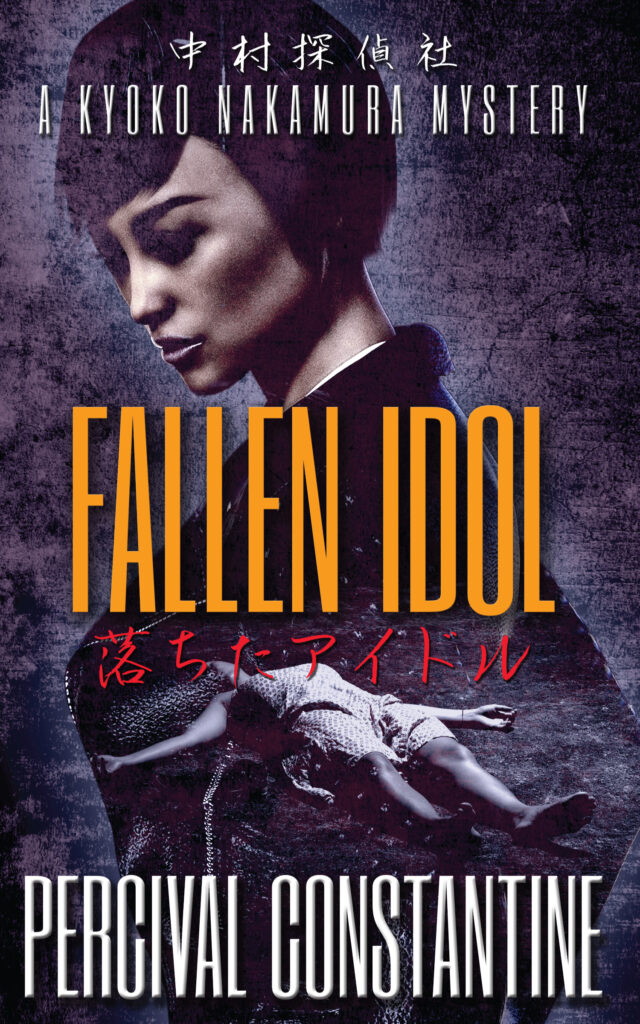
Raised on a consistent diet of superhero comics, action movies, and video games, Percival Constantine wanted to grow up and write the type of fiction he consumed. Now as a prolific author of pulp fiction, he’s written around thirty books across various genres. He’s also the host two podcasts—Japan On Film and Superhero Cinephiles. When he’s not working on projects, he somehow finds time to teach classes in literature, film, and English. Born and raised in Chicago, he’s now based in Kagoshima, Japan.
Alec McAulay is an award-winning writer and director. Originally from Glasgow, Scotland, he has lived in Japan since 1989. He teaches Creative Writing at Yokohama National University. Alec has an MA Screenwriting (Distinction), and a PhD (Screenwriting) from the Faculty of Media & Communication, Bournemouth University. His children’s novel Robot Santa (unpublished) is about a ‘hafu’ Scottish-Japanese girl who builds a robot Santa to save Christmas.
Warren Decker is a teacher and writer based in Izumi, Japan. He has published poetry, fiction, and nonfiction in The Best American Poetry 2018, The New Ohio Review, Modern Haiku, Sou’wester, and other journals. His first book of poetry The Long Side of the Midnight Sun is available from Isobar Press. He has an MFA in creative writing from the online program at the University of Texas, El Paso.
6/18/20 Free webinar about online opportunities
Minasan, I hope you are staying safe and healthy during these strange and uncertain times. My heart goes out to all the injustice that is happening in the world, and hope that the world can unite to stamp out hate.
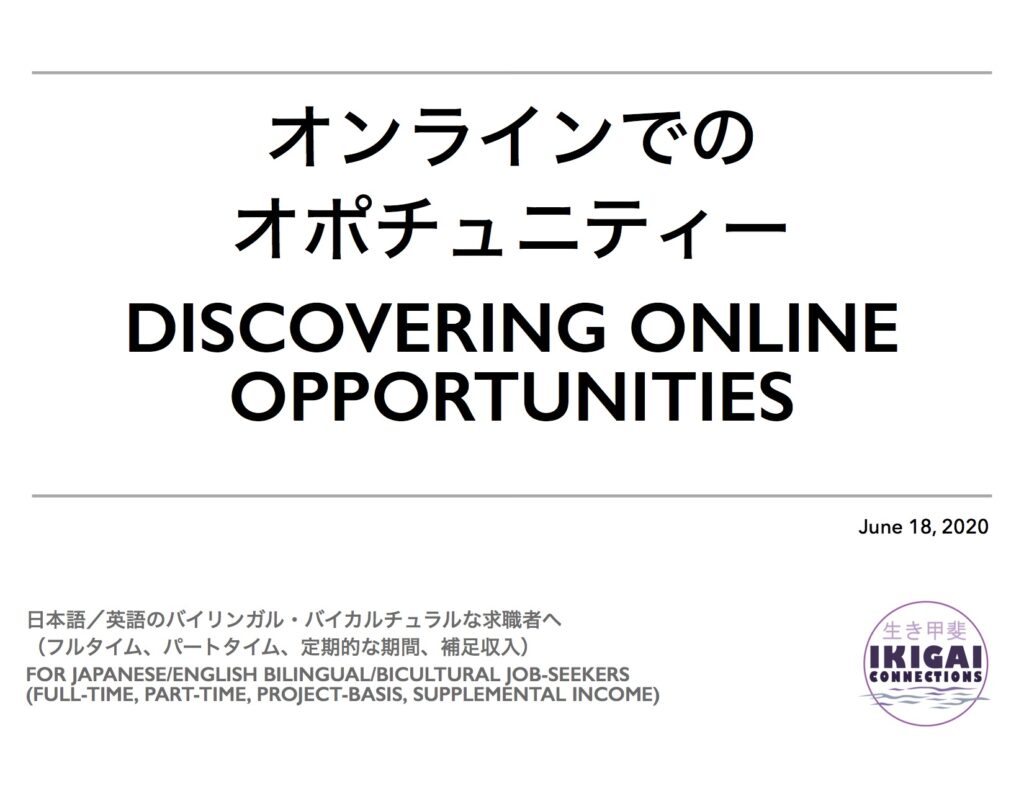
Today I wanted to invite you to a free webinar that I will be doing in Japanese about online opportunities on June 18 (Thur) 6 PM EST.
Many people ask me what they can do to find work during these uncertain times. These people had internships or jobs ready to go in Japan or their country, but the COVID-19 pandemic caused cancellations, layoffs and furloughs.
My answer: think outside the box. There are many opportunities that exist, you just have to FIND them. Although they may not appear perfect, it is *something* you can do to keep moving forward. Action = momentum!
Learn more about the various freelancing and online opportunities during my free webinar, whether it’s part-time, full-time or project-based.
Please note, though, that I will be doing this in Japanese… To be honest, I’m a little nervous that I will sound like a child, but I am ready because this is a topic that I am comfortable discussing. If you want to see me present in my foreign language so that you can realize nobody is “fluent” – please join!! It might give you the confidence that your nihongo is actually quite good. If I can do it, ANYONE can do it!
Free webinar date/time: June 18 (Thurs) 6 PM EST
If you’re interested, please contact me for the link!
Guest blog post by Kasia Lynch, Founder of Ikigai Connections, who supports job-seekers with her blog, job board and online training programs. Although not a former JET, she’s a big supporter of the Great Lakes JETAA and previously lived in Shiga-ken, Kobe, Kyoto, Saitama-ken and Tokyo (total 8 years).
Post-JET Jobs: Using Your Bilingual/Bicultural Skills
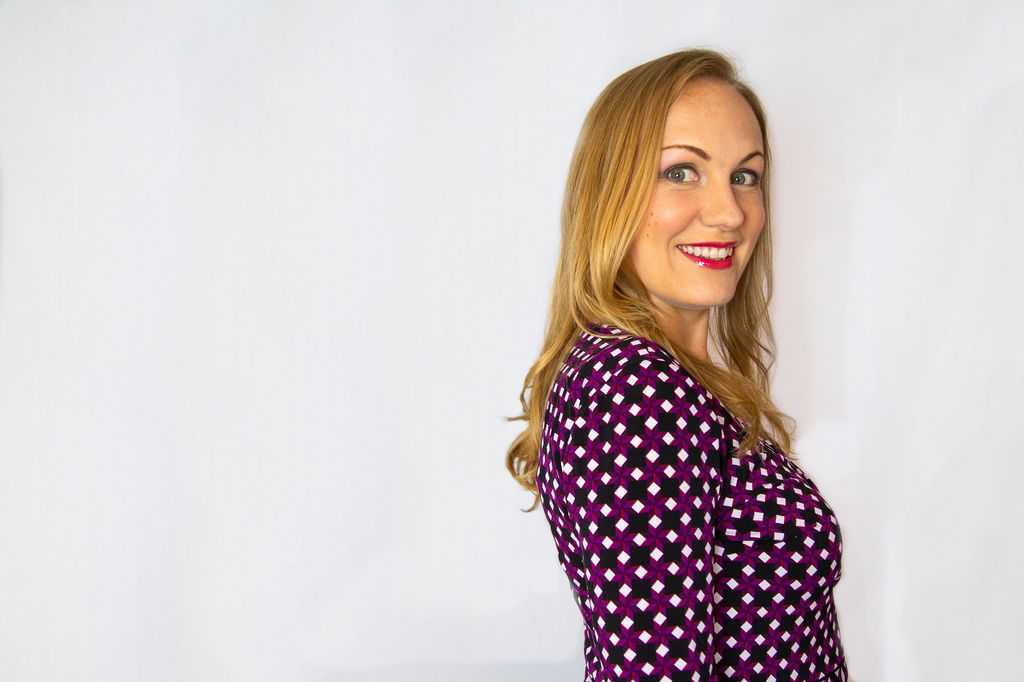
Guest blog post by Kasia Lynch, Founder of Ikigai Connections, who supports job-seekers with her blog, job board and online training programs. Although not a former JET, she’s a big supporter of the Great Lakes JETAA and previously lived in Shiga-ken, Kobe, Kyoto, Saitama-ken and Tokyo (total 8 years). She also studied on the same KCJS program in Kyoto with WITLife’s Stacy Smith back in 1998-1999.
I’ve often met JET alumni who have come back from the most incredible time of their life in Japan and struggle with their next career steps.
Here are the top 4 things I hear about this struggle:
- What can I possibly do with the experience I gained while on the JET Program?
- I’ve had such a life-changing time in Japan, and I’m super confused about what I want to do.
- I’ve been gone so long in Japan that I don’t know how to find a job in <country>.
- I’m “behind” in the job search and/or no one is hiring.
I will answer each of these struggles and provide my top tips on job searching regardless of where you are at in your journey.
Read MoreJob: Tourism-related writer (Japan) or copyeditor (anywhere)
Posted by Tom Baker
This job listing come from Brendan Craine, a managing editor at Export Japan, a small translation and content production company in Nihonbashi, Tokyo. The job involves the production of expository text for Japan’s various tourist sites under the auspices of the Japan Tourism Agency. Applicants must complete certain trials by April 10. They can receive the trial material by emailing their credentials to writing@export-japan.co.jp with the subject line: “JTA Signage Revision Project 2020 – Inquiry about Freelance Work [first and last name].”
The following is the description provided by Craine, lightly edited:
**********************************
Information about the project (in Japanese) can be found here.
This project has been ongoing since May 2018. Last year alone, we produced over 500 pieces of text for 24 different localities. These texts ranged in topic and medium, from museum panels about national parks to online text about castle ruins, and had our writers traveling to well-known sites in Kyoto and Nikko as well as seldom-traveled islands like Oki and Ogasawara.
The project will continue in this coming year, and we are looking for writers and copyeditors to assist in the text production process.
Position: Writer or Copyeditor
Term: Ongoing between May 2020 and January 2021
Duties: (see trials for in-depth explanation)
Writer: Preliminary research on assigned location, accompanied coverage of local site, production of text and revision in response to editor feedback
Copyeditor: Preliminary research on assigned location, editing of drafted text
Compensation:
Writer: ¥18,000 per 250-word piece of text
Copyeditor: ¥5,000 per 250-word piece of text
(Participants are assigned 15 texts on average)
[Candidates with Japanese language proficiency equivalent to JLPT N2 or better are highly preferred.]
Because writing signage text is markedly different than writing for journalistic or academic publications, the JTA has mandated that writers and copyeditors must be vetted with trials. In order to be considered for either position, you will need to submit its associated trial. (Applications for both positions are also accepted, provided both trials are submitted.) Trials will be accepted until April the 10th.
Although writers residing in Japan are desirable, transportation to/from Japan can be provided for a strong candidate living overseas. Any lodging and transportation costs associated with coverage will be provided. The copyediting work can be performed entirely from overseas.
If you have any clarifying questions/other inquiries, please feel free to respond and ask.
This position is open to any qualified candidate, and referrals are welcome.
In that case, please have your colleagues email their credentials to writing@export-japan.co.jp with the subject line:
“JTA Signage Revision Project 2020 – Inquiry about Freelance Work [first and last name]”
SurviveInJapan: Why Now is the Perfect Time to Work in Japan
Thomas Chang has lived and worked in Japan since 2015 and is the publisher of the Survive in Japan blog. Thomas came to Japan as an ALT and eventually became a software engineer in Tokyo. In his spare time, he enjoys exploring Tokyo’s many cafes and enjoys drinking a nice cup of coffee early in the weekends.
Japan is one of the most popular destinations, both for tourism and for living. Japan’s anime, food, and technology are enjoyed all over the world and it sparks people’s interest in the country. Japan is also a good place to live, with convenience stores everywhere and very low crime rates. If you’ve ever thought about getting a job and living in Japan, now is the perfect time to do so. This article will show you what makes now the best time to look for a job and what kind of jobs are best for foreigners.
Japan’s Shrinking Population
One of the biggest reasons why now is the perfect time to move to Japan is the shrinking population. There are far fewer Japanese babies being born today than before the 1970s, resulting in an imbalance of young and old people. In fact, half the population in Japan is over 46 years old. This is causing an economic crisis since there are not enough people working to support the older generation.
In order to fill this gap, Japan has no choice but to open more doors for foreigners to work and live in the country. As a result, there are more and more job openings available to foreigners every year.
Japan’s Traditional Work Culture
Japan has a work culture that’s different from the rest of the world and it starts from the hiring process. Instead of hiring one by one when needed, most companies follow a process called shuushoku katsudou where they mass hire new graduates every year. The shuushoku katsudou period would be considered one of the most critical times of your life because, in that year, you would have to choose a company that you would work for for the rest of your life.
It sounds crazy but the reason is that switching jobs was often looked down upon by society and it was extremely hard to find a company that would hire somebody that has quit their previous job. In fact, this was so extreme that suicide became the number 1 cause of death in Japan for men ages 20-44.
With times changing and the shrinking population crisis, Japan’s work culture is changing little by little. Shuushoku katsudou is still around but working conditions are improving and more people are able to switch jobs, which means that foreigners can also find jobs.
Opportunities for Foreigners in Japan
English Teacher
This is the most well-known method to start working in Japan. With Japan’s plans to increase English education, there are more and more English teaching jobs available than before …
Click here to read the full post at surviveinjapan.com
Life After JET: Podcast interview with Stephen Horowitz, Director of Legal English Programs
*******
*******
Steven Horowitz (Aichi-ken, Kariya-shi, 1992-94) is the founder of JETwit, a member of the JETAA USA Board of Advisors, and Director of Legal English Programs at St. John’s University School of Law in Queens, NYC, “the most ethnically diverse urban place on the planet.” He also writes for the St. John’s Legal English Blog.
I was recently interviewed for a podcast episode by Louise Kulbicki, founder of StudyLegalEnglish.com, about the legal English work I do at St. John’s Law School with the LLM students and other non-native English speaking students there. Since my experience on JET teaching English and learning to function well in a cross-cultural environment has been core to my current career, and since JETs often want to know what people do after JET, I thought I’d share the interview here in case of interest.
Here’s a link to the podcast episode titled “LL.M. Legal Writing Tips with Stephen Horowitz”
Topics covered:
- Legal English LLM programmes for non-native speakers
- Legal English writing challenges and tips
- Using IRAC – Issue, Rule, Application, and Conclusion
- Understanding categorization
- Legal English resources
And here’s the video version of the podcast:
To learn more about what I do, or if you’re interested in getting into the field of legal English, you can read more at the St. John’s Legal English Blog. Feel free to contact me as well. (Did I mention I’m fortunate to work with two other JET alums at St. John’s Law School?)
Opportunity: 2019 Japanese American Leadership Delegation – The Ministry of Foreign Affairs and the U.S.-Japan Council (Los Angeles and Japan)
Posted by Sydney Sparrow. Click here to join the JETwit Jobs Google Group and receive job listings even sooner by email.
Opportunity: 2019 Japanese American Leadership Delegation
Posted by: The Ministry of Foreign Affairs and the U.S.-Japan Council
Training: Los Angeles (February 1-2, 2019)
Travel: Travel to Japan (March 1-9, 2019)
Here’s a wonderful opportunity for Japanese Americans to strengthen the ties between the United States and Japan through this program sent to us directly from the Consul-General of Japan in New York.
The Japanese American Leadership Delegation (JALD) program provides the opportunity for a select group of Japanese American leaders from across the United States to travel to Japan to engage with Japanese leaders in the business, government, academic, nonprofit and cultural sectors.
The trip also allows Japanese leaders to gain a greater understanding of multi-cultural America through the experiences of a diverse group of Japanese Americans. Upon their return, delegates collaborate with program alumni, the local consulates, the U.S.-Japan Council and local and national community organizations to continue strengthening ties between the U.S. and Japan.
2019 APPLICATIONS NOW OPEN – DEADLINE: SEPTEMBER 14, 2018
St. John’s Legal English: Comprehensible input for legal English students
Steven Horowitz (Aichi-ken, 1992-94) is Director of Legal English at St. John’s University School of Law in Queens, NY and publisher of the St. John’s Legal English blog. He will be attending the upcoming TESOL International Conference in Seattle and will be on a panel titled “Legal Language: Strategies for Effective Communication in Law School” scheduled for March 23.
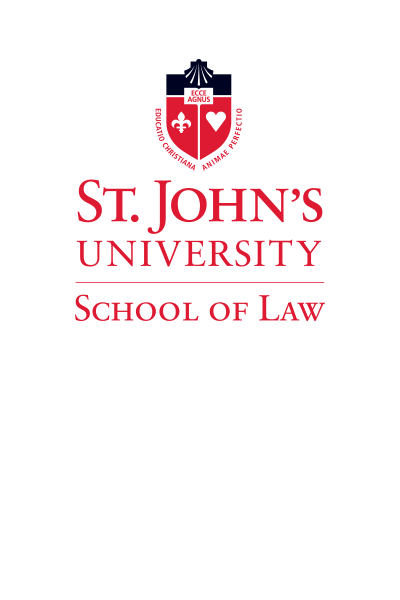 Comprehensible input for legal English students: Resources, approaches & ideas
Comprehensible input for legal English students: Resources, approaches & ideas
International students in LLM and legal English programs at US law schools come to study law, not ESL. At the same time, law study requires deep engagement with texts and concepts that are complex and challenging even for native English speakers. But how do you have substantive class discussions or evaluate students’ legal writing when students are struggling to sufficiently comprehend the language of the reading?
In linguistics, the relevant term is “comprehensible input.”
Click here to read the full blog post on the St. John’s Legal English blog.
By Mark Flanigan, Nagasaki (2000-04)
As a JET alumnus, I look back fondly on the four years I spent living and teaching in Nagasaki Prefecture. Serving on JET was, quite literally, one of those “life-changing” experiences, as it confirmed my career path in the direction of public service and global education. In the 15 years or so since my time in Nagasaki, I have been lucky to have had international roles in the U.S. government, in higher education, and at a private, Japan-focused non-profit foundation. I was even fortunate enough to return to Japan a second time, to earn my MA in Peace Studies in 2012 through the Rotary Peace Center at International Christian University (ICU) in Tokyo. Later, I served in a variety of roles in Manhattan with JETAANY between 2012-16.
My most recent career stage brought me back into the classroom, albeit in a different role and a new part of Asia for me. I am currently serving as a WorldTeach Fellow volunteer in Chittagong, Bangladesh, at the Asian University for Women (AUW). It has been both a challenging and rewarding transition back into teaching, as I felt a bit rusty in the beginning and took a bit of time to get back in the groove. Also, my main experiences with Asia had been almost entirely focused on Japan, China, and Korea. For me, South Asian history and culture was something I knew very little about up until a couple of years ago. Being here, I realized how comparatively little I knew about the diverse cultures of the Indian subcontinent of Asia. Nonetheless, it has proven to be an extremely rewarding transition, personally as well as professionally.
Me with some of my Pathways students in Bangladesh
Through a friend in New York City, I had first learned about AUW back in 2015. She had been a WorldTeach Fellow here a few years before, volunteering and having a really significant educational and cultural experience. The more I heard about her time in Bangladesh, the more I thought it sounded like a great opportunity to get back in the classroom while making a positive contribution to education for women at a significant institution like AUW. While I definitely enjoyed my four years in Manhattan, working as a Program Director with the Japan ICU Foundation (日本国際基督教大学財団), I also felt ready to take on a new challenge. I applied and was happily accepted as a new volunteer with WorldTeach, and assigned to AUW for the 2016-17 academic year.
AUW was founded in 2008 as a regional hub to help educate underprivileged women throughout different regions of Asia and the Middle East. With a liberal arts curriculum that promotes critical thinking and women’s empowerment, it is a truly encouraging place for young women who have faced numerous challenges in life due to poverty, gender bias, and sectarian conflict. With 600 students (and over 400 alumnae) from 15 different countries, including Nepal, Bhutan, Myanmar, Vietnam, Cambodia, Sri Lanka, Afghanistan, Pakistan, Syria, Palestine, and others, AUW is an amazingly diverse place. The dynamic environment, small class sizes, and daily interaction of people with many different ideas, perspectives, and cultures makes it an esteemed center of higher education in South Asia.
However, I almost missed my chance to be here. Less than one month before I was due to arrive at AUW, we heard the news of the terrible attack in Dhaka, the capital city of Bangladesh. All I knew was that international residents of the city (and their local friends and colleagues) had been targeted specifically in a vicious terror strike. The attackers, while a definite minority in terms of the general population, were sending a very clear and deadly message. Although the attack did not take place in Chittagong, it was great cause for concern among both WorldTeach and AUW staff, as well as present and future volunteers. At that time, it was not clear whether we would still be able to serve in Bangladesh, or how the program might proceed. Many safety protocols would need to be analyzed and revised before a final decision could be made. In the end we were still given the option to come, which I was definitely happy to hear.
I have now been here for seven months, teaching two different groups of students over the autumn and now spring terms. My classes are part of the Pathways for Promise Program at AUW, which is the recently developed entry point for women who have not had as much formal preparation to succeed in higher education. Many of them have come as former workers from the garment factories of Bangladesh, while others are daughters of Grameen Bank loan recipients, refugees from the persecuted Rohingya community, as well as indigenous minorities from the Chittagong Hill tracts region. In addition to Bangladeshis, Pathways students have come from Afghanistan, Cambodia, and Myanmar. They will take classes for approximately one year in Reading and Writing as well as Listening and Speaking, and also study Math and IT while participating in Community Time and Social Mentoring workshops and events.

A lovely display of Bengali cuisine
If they complete the Pathways Program successfully and meet all the exam requirements, they will advance to the one-year Access Academy and then an additional three years of undergraduate study at AUW. In all, the successful ones will graduate in five years with their bachelor’s degree in hand. Against all odds, this is their big chance to earn their college degree. Without the encouragement and funding support to match their own amazing dedication, it would most likely be impossible. It will not be easy for them. Many are far away from home and spend almost all of their time on the small but secure campus. They live in dormitories with 2-5 students per room, eat in the dining hall, and take all their classes together, so there is very little time for privacy or quiet reflection. Nonetheless, they are very eager to learn and make the most of this unique opportunity they have been granted.
It goes without saying that my students inspire me each and every day. Teaching them is really one of the biggest joys of my life here, and in many ways takes me back to my first experience teaching overseas in Japan. Although those two times are separated by about 15 years and many more miles, there are also some interesting parallels between them. Of the many things I have discovered over my time here thus far at AUW, one of the most interesting has been the surprising number of existing connections here between Bangladesh and Japan. As a former JET who later studied at ICU and worked to promote increased U.S.-Japan ties, it’s been a really pleasant surprise to find out about and help to build on these great bilateral bonds of friendship.
The first one, I discovered quite by accident. In the early part of the autumn semester, I was walking in the hallway outside of my office when I heard the distinct counts of “ICHI, NI, SAN, SHIIII!!” emanating from the level above. Intrigued, I climbed the staircase up to the next floor and was surprised to discover the gymnasium filled with perfect rows of students. They were in straight lines, balanced in strict stances, with fists alternately chambered by their side and then thrust forward in a crisp motion I instantly recognized. My mind wandered back to our small dojo in Hirado City, Nagasaki, where I spent countless hours drilling in those very same “kihon” movements. I was curious to find out more, so I made arrangements to return and observe a longer class in session.
It was then that I met Ms. Maria Chakraboty, their instructor, a remarkable woman from Bangladesh who has achieved her 5-Dan rank in Shotokan Karate. Maria serves as a real inspiration to her students, as AUW’s Associate Director of Physical Education and Karate instructor. Maria grew up in Chittagong, the same city where AUW is based, and faced hardships of her own due to people judging her negatively by her gender. She was strongly discouraged by others in her pursuit of Karate, but through the encouragement of her instructors, she has achieved a remarkable number of accomplishments. For her students, Maria is a living, breathing example of a successful adult woman, who has faced down discrimination and has continued her own personal growth through embracing the Japanese art of Karate. She has been able to impart her wisdom and experience to hundreds of young students through the years. Such is the wonderful environment of a cross-cultural, liberal arts university like AUW.
Maria (Center) training with some of her AUW students
In addition to Karate, there are other tangible bonds of kizuna between AUW and Japan. Attending the University’s Club Fair this past autumn, I was happy to learn that AUW students are involved in all kinds of social and academic club activities. Similar to Japan, students here balance their time between formal classes and organized clubs, like Model UN, Animal Welfare, a variety of sports, and other pursuits. Most interestingly to me, I discovered that there is a very active group of students on campus who are involved in the AUW Japan Circle Club! They are extremely genki and know an amazing amount of things regarding Japanese culture. They study Japanese on their own (as it is not taught here), read manga, watch anime, and even make their own kimono and other clothing by hand! Upon meeting them, I shared my experience as a JET alumnus and former ICU graduate student. They asked me to serve as their faculty advisor, to which I most happily agreed!
With some of the AUW Japan Circle Club students (and their hand-made clothing)!
I have been very happy to be working with them on various projects here this term. Most specifically, we have planned and organized a Japanese book drive among some of my colleagues and friends in Japan and Hong Kong. Through their kind and generous help, we have now received about seven boxes full of manga, books, magazines, language textbooks, and Japanese-English dictionaries from abroad! All of these were donated to the AUW library, so students can access them freely anytime. As none of our students have been able to visit Japan as of yet, they really love the chance to see any kind of “hon mono” firsthand. One Tokyo friend in particular also sent a variety of delicious Japanese candies, which were a big hit with the students! We are still interested in receiving any other items from Japan, if anyone would like to donate. Additionally, the students performed a number of Japanese songs (in Japanese) and dances for our recent Lunar New Year Festival. We hope to develop exchange partnerships with AUW and universities in Japan, in order to offer study abroad opportunities in both directions. Interestingly, at least one AUW alumna is now studying in Japan, earning her Master’s degree at the United Nations University (UNU) in Tokyo!
Lastly, there is a very robust level of support for AUW in Tokyo. As part of the global support network for AUW students, a number of highly-accomplished and very influential donors make up the “Friends of AUW Japan” organization. Among them is Ms. Kathy Matsui,Vice Chair of Goldman Sachs Japan,who has a long and deep connection to AUW. In 2007, she was chosen by the Wall Street Journal newspaper as one of the “10 Women to Watch in Asia” for her work on the “Womenomics” theme, and serves as a board member of the AUW Support Foundation. Ms. Matsui and her husband, Mr. Jesper Koll, have been major donors to AUW since its inception, and they continue to look for ways to promote exchange between AUW and Japanese universities and companies. In addition, First Lady Akie Abe serves as an official Patron of AUW and has been actively involved with a number of fundraising efforts on behalf of the university in Tokyo over the past few years. Lastly, AUW has enjoyed very generous support through the past several years from a number of Japanese companies like HITACHI, MITSUI & CO., TOSHIBA CORPORATION, and UNIQLO.
First Lady Akie Abe (center) and Ms. Kathy Matsui (second from right)
In conclusion, I would say my time here in Bangladesh has been a wonderful journey thus far. In many ways, it’s a completely new (and sometimes bumpy) experience for me, living in South Asia and in a developing, Muslim-majority country for the first time. Culturally, it’s much different than what I was used to, but that’s been a good opportunity to broaden my own horizons and question my preconceived notions about life as well. My students in the Pathways for Promise Program specifically, and AUW students in general, have taught me so much and really inspired me through their own energy, resilience, and desire to learn. As a nice coincidence, this latest chapter in my career also brings me back to teaching and to Japan in many ways. I am happy to have so many “natsukashii” moments here, to help teach these remarkable young women, and also to be in a position to try and advance the relationships between people in Bangladesh and Japan. In some ways, it’s the most unexpected yet personally satisfying addition to my time here at AUW. I’m happy to make the most of all these fortuitous connections during my time here in Bangladesh and beyond.
=================================================================================
Mark Flanigan is currently a WorldTeach Fellow volunteer in Chittagong, Bangladesh, at the Asian University for Women (AUW). Mark served as an ALT in Nagasaki Prefecture from 2000-4, and later studied for his MA in Peace Studies as a Rotary Peace Fellow at the International Christian University (ICU) in Tokyo from 2010-12. After graduating from ICU in 2012, he spent four years working for the Japan ICU Foundation in NYC. He has also held leadership roles in the JET Alumni Associations of both New York and Washington, DC. He can be reached at markinmitaka(at)gmail.com

Job: Assistant Reporter (Sydney, Australia)
Title: Assistant Reporter, leading new network
Location: Sydney
Salary: 47-70K+S Depends on your experience and negotiations
Hours: Mon-Fri 10:00-6:00pm
The Role
You will assist the Bureau Chief in reporting, researching, and write general news and breaking news stories under the direction of the News desk. The role will also include some clerical work.
Criteria
- Research ability ( web, newspaper) in English
- Native English ability with good writing skill (article should be written in English)
- Interstate travel required (anywhere big news are, around 2/months)
- Understanding of Australian politics and social issues, strong interest in Australia-Japan relations are essential.
Desirable
- Interest in writing news, mainly politics, Australia and foreign relation
- Experience in writing for news media or degree in Journalism is plus
- Japanese language or cultural understanding an advantage
To apply, email (to career@ssaust.com.au) your resume (Word File) and short description of your previous experience and your selling points preferably which match the job description or criteria (3-5 lines).
Life After JET: Patrick Finn
By Jon Dao(Toyama-ken, 2009-12) for his podcast Discussions with Dao. Jon works as a speech coach andpersonal trainer.
Fresh off the plane (okay maybe more like a few weeks) from a 5 year stint in the JET Programme, here’s graphic designer Patrick Finn! Be sure to follow him on Instagram and Twitter.
The “Best Thing” being back (1:20)
Using Credit Cards Over There (4:10)
Music/Concerts in Japan (8:38)
Japan Apologists (15:20)
Why do the JET Program? (17:10)
What kept you going for 5 years? (20:10)
Is JET “worth it” for personal and professional development? (26:41)
“Just living alone and kind of having to start fresh, I could throw away any ties I had to people, right? Okay, I can finally be me. No one expects anything of me because they don’t know me. So I don’t have to live up to anyone’s expectations. Be 100% me and build my reputation around that.”
Traveling “Outside” (31:17)
Silence on the Struggle (33:07)
“You HAVE TO be a go getter, otherwise it’s not going to happen to you.” – @PMF1030 #hustle What is “it”? You decide!
— Jon Dao (@CommDao) August 10, 2016
Get the Pension Refund (37:40)
Fan Question (40:32)
Tomorrow I #podcast with graphic designer and recent #Japan returnee @PMF1030. Former JETs and current JETs, send… https://t.co/1OnIcM2rMp
— Jon Dao (@CommDao) August 8, 2016
“If you find yourself doing things that you could’ve been doing where you came from, You shouldn’t be there. You’re making a mistake. You’re not making the most of your time, and you’re wasting someone else’s opportunity.”
JET Talks: George Rose – Baseball and the US-Japan Relationship
************
What do people do after JET? Here’s one great example.
On November 16, JETAA DC held the latest in their JET Talks series with a talk by JET alum George Rose (Fukushima-ken, 1989-91), former interpreter for Hideki Irabu and current Director of Pacific Rim Operations for the New York Yankees, not to mention former JETAA NY President.
Here’s a video of the talk. (Thanks to JETAA DC Vice-President Joy Young for passing this on!) Many great anecdotes including one about interpreting for Hideki Matsui on the Regis and Kathy Show. Plus, did you know that George played a role in helping the Yankees sign Masahiro Tanaka? Watch and enjoy!
https://www.youtube.com/watch?v=fuA3cbHacfw
Job: Education Recruitment Consultant (Tokyo)
This is a repost, as the deadline for applications have been extended, with some modifications of conditions.
Posted by Eden Law, President of JETAA NSW (who doesn’t work at the company, but posts on their behalf). Note that a knowledge of the Australian education system is preferred, as is a Japanese PR or an unrestricted working visa. However, sponsorship may be considered for the right candidate.
Position: Education Recruitment Consultant
Posted by: Staff Solutions Career
Location: Tokyo, Japan
Status: Full-Time
As a highly reputable Educational Agency that caters for international students, our client currently seeks a highly motivated individual to perform the role of Education Recruitment Consultant.
For more details, please check out the job ad @ Seek.com.au.
Life After JET: Going Your Own Way
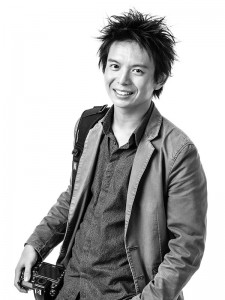
Striking out on your own, especially in pursuing a long-held dream, is always going to be a terrifying and highly stressful experience. Julius Pang (Fukuoka-ken, 2004-2007, ALT) made that journey this year when he launched his own company (Incredible Photo Tours), a travel company focused on (the taking of, and teaching of) photography. He is a multi-award winning photographer and world traveller, either shooting in exotic locales or being backstage at a conference made up of international heads of state. Obviously he’s been somewhat busy after JET, so I (Eden Law, Fukushima-ken, 2010-2011 ALT) had a chat with Julius about how he got to where he is.
Congratulations on your new company – how did the idea for this come about?
Thanks Eden! The idea for my company has come about because I wanted to combine 3 things I’ve really enjoyed doing in my work life: photography, travel, and teaching photography. I’ve been aware of photo tours being run by various photographers and companies for several years and even considered doing one myself several years ago. I think in the back of my head I always wanted to lead photo tours every time I visited a new country or region over the past 12 years.
In Nov 2013 I visited India and I encountered at least 2 photo workshops being run at the Pushkar Camel Fair, and I asked myself why wasn’t I doing that? From there, I decided I wanted to make my idea work. I had the photography skills and travel experience, I just needed the business skills to put everything together.
From Mar-Jun 2014, I undertook a major scouting trip to Japan and also visited Vietnam. During this trip I revisited many places in Japan I had been to and new ones in order to devise tour itineraries. I went to Vietnam to complete my coverage of the major SE Asian countries and also do some location scouting. Interestingly enough, when I was in Japan I encountered a Chinese photo tour group at Kawaguchiko!
When I returned to Perth in June 2014 after my scouting trip, I began planning my photo tour company. I’m so pleased it’s now up and running!
Starting up a new company must have been a complicated process – what sort of hurdles did you encounter?
The main hurdle would have been my getting over my own self-doubt and ignoring the opinion of various naysayers. It’s difficult enough making a living from photography particularly if you don’t do wedding photography (as in my case), let alone moving into a specialised area like travel photography and also moving into the tourism industry at the same time. When you then have people who chime in with their opinion about how your idea isn’t going to work or questioning if the business is realistic, this really chips away at your confidence. I’ve learnt it’s so much better to listen to very successful business people and entrepreneurs who can look at your idea objectively and provide critical feedback based on their own experiences. These kind of people also have a great energy you can feed off and be inspired by.
I was fortunate enough to come across a government programme called the New Enterprise Initiative Scheme (NEIS) which provides business training and financial support for people build new businesses. The NEIS provider I am with have been instrumental in helping me learn new business skills, implementing a solid business plan, addressing OHS and legal issues, mentoring, and most of all, develop my self-belief and confidence as they’ve helped many small businesses get off the ground and sustain themselves. They encouraged my idea but tempered it with a good dose of the realities of doing business.
I strongly believed in my idea and the feasibility of it but I felt that I needed to establish myself as a travel photographer first; I wanted to know where my work stood at a professional level. I began entering various prominent photography competitions from 2013 but it’s only been the past year when I won several awards that I knew I had the photography credentials. The problem was then learning new business skills – being on the NEIS programme has enabled me to learn those key business skills and bring my idea to life with Incredible Photo Tours.
So the process has been very involved but extremely rewarding at the same time.
How did you JET experience help or influence you when you went about setting up your company?
I decided to visit Japan in 2003 from late January to late February to take a long-desired first solo travel experience as an adult (this was my substitute for a gap year break), and also to visit two friends who were on the JET Programme and in rural placements.
I wanted to see typical touristy Japan as well as the unseen Japan out in the sticks. I also chose to visit during winter as I wanted to see snow for the first time (I ended up being obsessed with it – visiting the Sapporo Snow Festival and learning snowboarding from a random group of friendly Japanese uni students!), and because the timing worked with my uni summer break.
When I got back from that trip, I had to complete my final year of Design studies, but I applied for the JET Programme straight away when the applications came out that year. Then it was a long wait until I found out I got into the interview round and thankfully enough I did well and got onto the JET Programme.
I promote Japan as my company’s main international photo tour destination so while I hadn’t thought of the idea for my photo tour company until after I left the JET Programme, my JET experience is now proving really important to distinguish myself from other companies. For example, the JET Programme has provided me with extensive local knowledge, cultural understanding, Japanese language skills, local friends and contacts.
In addition, my involvement with JETAA ever since returning from Japan has continued to strengthen my expertise and connection with Japan. The JETAA community is amazing and I’m really lucky to be able to have met and become friends with so many great people through JETAAWA and the other Oceania chapters.
So you were finishing up on university before JET, much like a lot of people. Was it difficult to get back into the workforce after JET?
In my case it wasn’t too bad. It took me 4 months to get back into full-time work once I got back. I looked on Seek and applied to several companies for a job as a web designer. The only company that asked me to come in for an interview was the Royal Automobile Club of WA (RAC WA).
During the interview I was asked about my work experience. I was honest in saying I didn’t have much of a portfolio of web and graphic design work given I had just spent three years teaching. The main portfolio piece I had was the Fukuoka JET website. While I was on JET I volunteered my time to work with the Fukuoka JET chapter committee and was their webmaster. I redesigned the Fukuoka JET website and stayed in the role for 2 years until I left JET. I was able to discuss this bit of work, my website management experience, and experience in using a Content Management System (CMS) in my job interview.
So the job interview went reasonably smoothly but I was still surprised when they called me back to formally offer me the job. When that happened I was really thankful that I had gotten myself more involved in work and activities outside of teaching while on JET. That one website for Fukuoka JET was critical in me getting that first job after JET. I also think that the soft skills I gained working as a teacher really helped in terms of my presentation and expression of ideas, not only in the interview, but with my job too.
I subsequently stayed in that job for 3 years, becoming a Senior Web Designer, then embarked on a change of career to become a professional photographer. I still did some further work with RAC on a contract basis and feel very fortunate to have worked with them.
Hope for everyone! Any other advice?
What can be drawn from my experience is that it’s important for JETs to keep busy outside of their teaching work life and consider the bigger picture of life after JET while they are still on JET. You have plenty of time while on JET to develop your other skills or knowledge outside of teaching, and this is really important to compensate for the lack of real world work experience (unless you are becoming a teacher) once you get back home. Being on the JET Programme helps you to develop key soft skills which any employer values, while the ability to understand and work within a Japanese working environment means you can handle office politics in a Western environment.
In short, the more you put in, the more you get out of the JET Programme.
Julius Pang is all over the internet. You can check out his company Incredible Photo Tours. Anyone can sign up for a spot with Incredible Photo tours even if they don’t live in Australia, which not only runs international trips but also locally in Western Australia.

